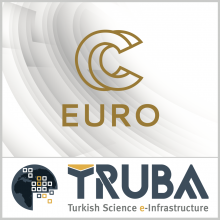Overview and Description:
This training is a combination of two related but unique topics; (1) processing Big Data with Hadoop and Spark with examples on clustering, classification, and regression and (2) geometric deep learning in which we mainly focus on graph neural networks and present exercises with Pytorch Geometric on graph/vertex labeling and link prediction.
Target audience:
Everyone interested in machine learning, big data processing and management, graph neural networks, and/or geometric deep learning.
Prerequisites:
We assume that participants have some familiarity with the Python language. Basic familiarity with Machine/Deep Learning is a plus.
Workflow:
The course is an online course on two separate days; the first day is on Big Data and the second is on Geometric Deep Learning. For both days, the morning session is a classical lecture and the afternoon session contains practical exercises. The participants can download the exercise files and can repeat them later in an appropriate environment (e.g., Google Colab or Jupyter Notebook)
Learning outcomes:
At the end of the course the student will be able to:
- Describe what is Hadoop and Spark, their differences, similarities, and their use-cases.
- Handle and processing Big Data with Spark.
- Perform ML tasks with MLlib on large datasets in a distributed environment.
- Describe what is geometric deep learning and its difference from traditional DL techniques.
- Describe what is a graph data structure and graph neural networks (GNN).
- Design and implement GNNs for various tasks by using Pytorch Geometric.
